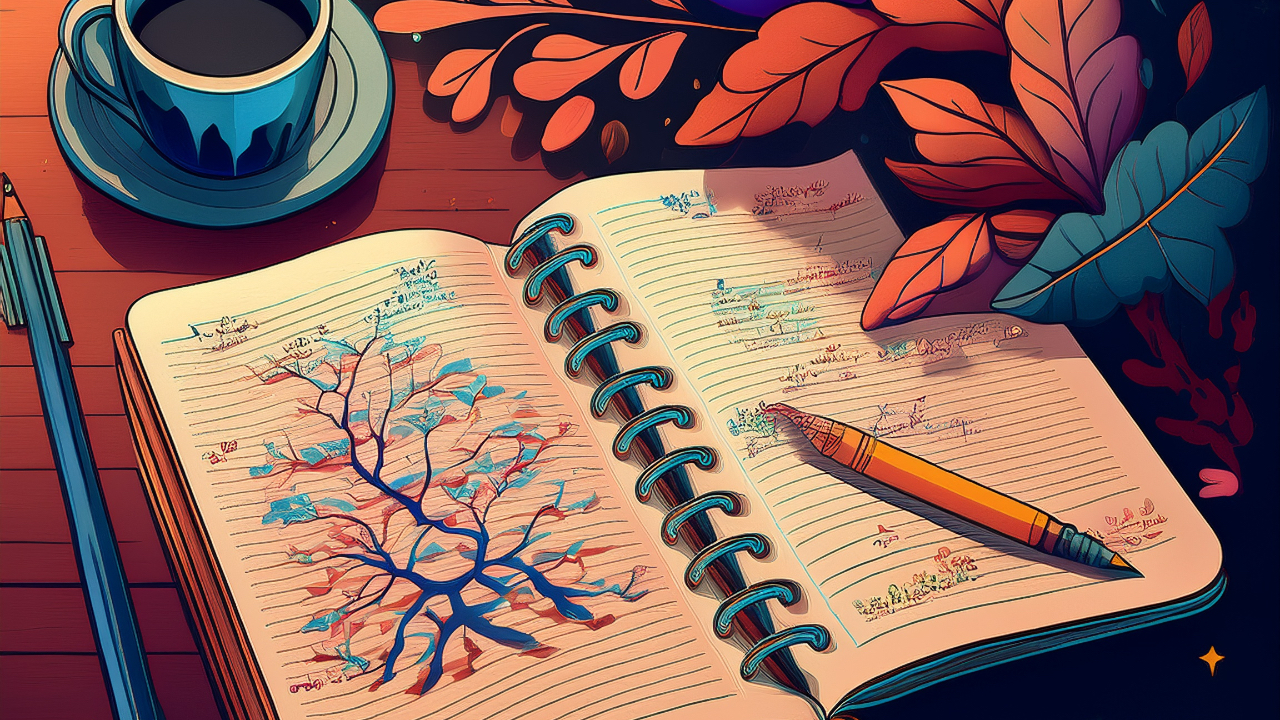How Journaling Improves Mental Clarity, Reduces Stress, and Boosts Personal Growth
Mar 31, 2025
By Andrew Wilson
How Writing Daily Can Improve Your Life Across the Board
Mental clutter affects your focus, mood, relationships, health, and even your sense of purpose. Journaling clears the noise. It gives you space to think, process, and grow.
Why Journaling Works
- Releases built-up stress
- Strengthens memory and focus
- Improves emotional regulation
- Tracks personal growth over time
Writing your thoughts forces you to slow down. That pause creates awareness. With awareness, you make better decisions.
Journaling in the 7 Dimensions of Growth
Mental Wellness & Emotional Intelligence
- Use journaling to name your emotions.
- Write what triggered them and how you responded.
- Over time, you’ll spot patterns and learn to pause before reacting.
Example Prompt:
“What emotion did I feel strongest today? What was underneath it?”
Physical Health & Well-Being
- Track sleep, exercise, pain, or energy.
- Record what you ate and how it made you feel.
- Reflect on what routines help or hurt your body.
Example Prompt:
“How did my body feel today? What choices supported it?”
Spiritual Growth & Faith-Based Learning
- Reflect on Scripture or spiritual readings.
- Journal your prayers or moments you sensed divine presence.
- Ask questions about purpose, grace, and struggle.
Example Prompt:
“What did God speak to me today through His Word?”
Personal Development & Self-Growth
- Set weekly intentions or long-term goals.
- Break down dreams into small actions.
- Reflect on progress, failures, and lessons learned.
Example Prompt:
“What did I do this week that moved me closer to the person I want to be?”
Career Development & Financial Growth
- Use journaling to track ideas, priorities, or stressors at work.
- List wins and challenges.
- Brain-dump before meetings or after networking.
Example Prompt:
“What did I learn at work today, and how can I apply it?”
Relationships & Social Well-Being
- Reflect on interactions that were meaningful or difficult.
- Explore your needs in friendships or romantic partnerships.
- Practice gratitude for the people in your life.
Example Prompt:
“Who gave me energy today, and who drained it?”
Decision-Making & Life Purpose
- Journal through tough decisions by listing pros, cons, fears, and hopes.
- Ask big questions. Let the answers unfold over time.
- Revisit old entries to see how far you’ve come.
Example Prompt:
“What is the deeper reason I’m being pulled in this direction?”
Paper Journaling vs. Digital Journaling
Paper Journaling
- Slower and more mindful
- Boosts memory retention
- No distractions
- No search or tags
Digital Journaling
- Easy to search and organize
- Can use voice or images
- Accessible from anywhere
- Easier to build habits with reminders
Use paper when you want depth and quiet. Use digital for speed and structure. You can do both.
Journaling Systems That Work
Choose a system that fits your goals. Some options:
Morning Pages
- Write 3 pages of stream-of-consciousness every morning.
- Helps clear mental fog before your day begins.
Bullet Journaling
- Combines tasks, events, and thoughts in one place.
- Great for productivity-minded people.
Gratitude Journaling
- Write 3–5 things you’re grateful for daily.
- Shifts mindset toward abundance.
Prompt-Based Journaling
- Answer a question each day.
- Helps target specific growth areas.
Recommended Journaling Apps
Day One
- Clean design, private entries, location and photo support.
- Best for overall personal journaling.
Journey
- Tracks goals and mood, syncs across devices.
- Good for wellness tracking.
Reflectly
- AI-powered mood tracking with prompts.
- Designed for emotional wellness.
Notion or Evernote
- Great for structured thinkers who want to connect notes, tasks, and reflection.
Memios (Coming Soon)
- Our journaling features will integrate personal growth, wellness tracking, faith reflections, and decision-making prompts.
- It will guide you daily through all 7 categories of self-growth.
Start Journaling Today
You don’t need to be a writer. You just need to be honest.
- Pick a time: morning, lunch, or evening.
- Choose a method: paper or app.
- Use prompts if you’re stuck.
- Stay consistent for 30 days.
Your mind will feel clearer. Your emotions will feel lighter. Your goals will feel closer.
Final Thought
Journaling is not therapy, but it is therapeutic. It helps you pay attention to what matters. And that’s where change begins.
Which area of your life could use more clarity right now? Start there. Write it down. Keep going.
Get the Free Trial to Try Memios

